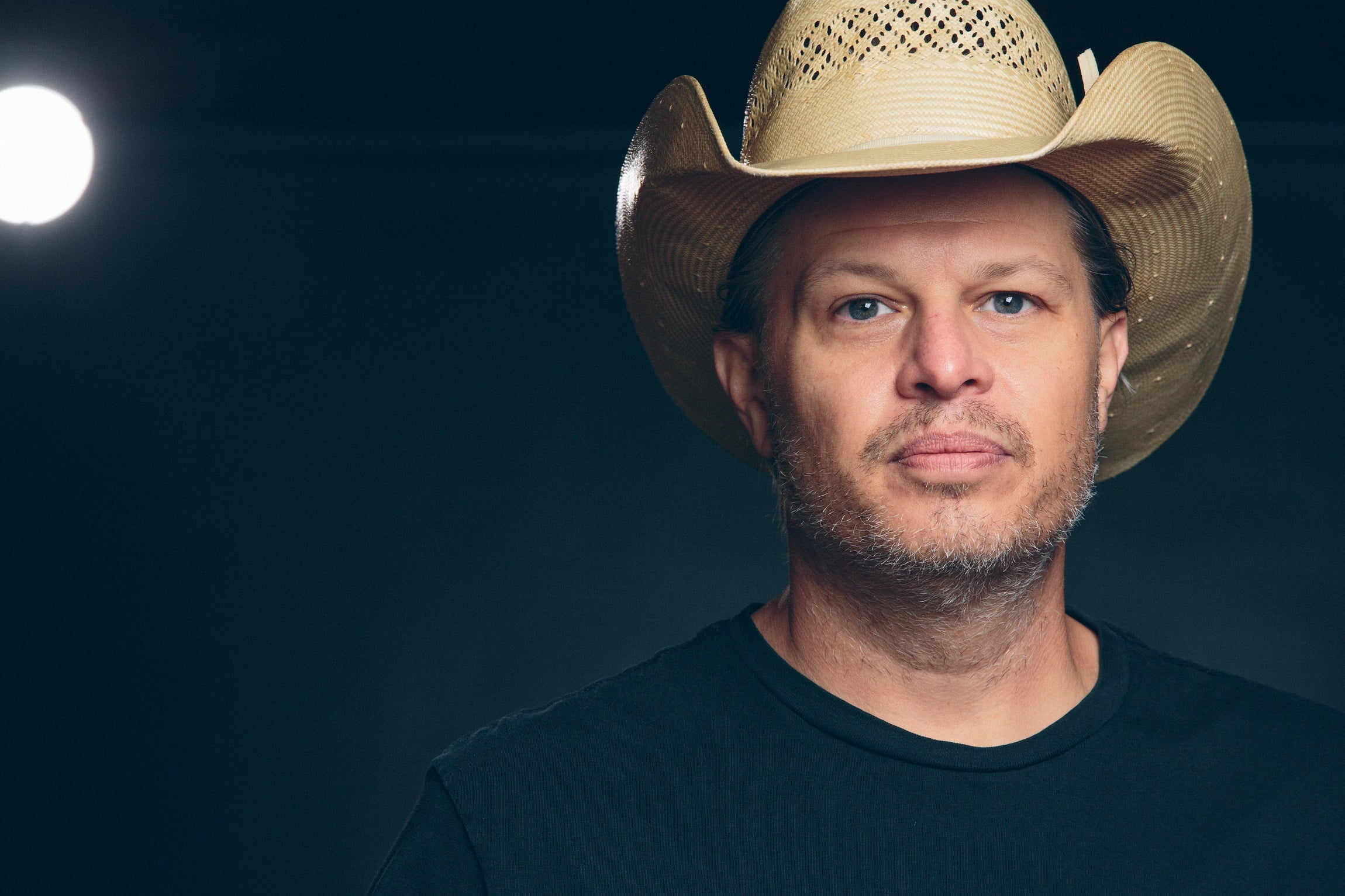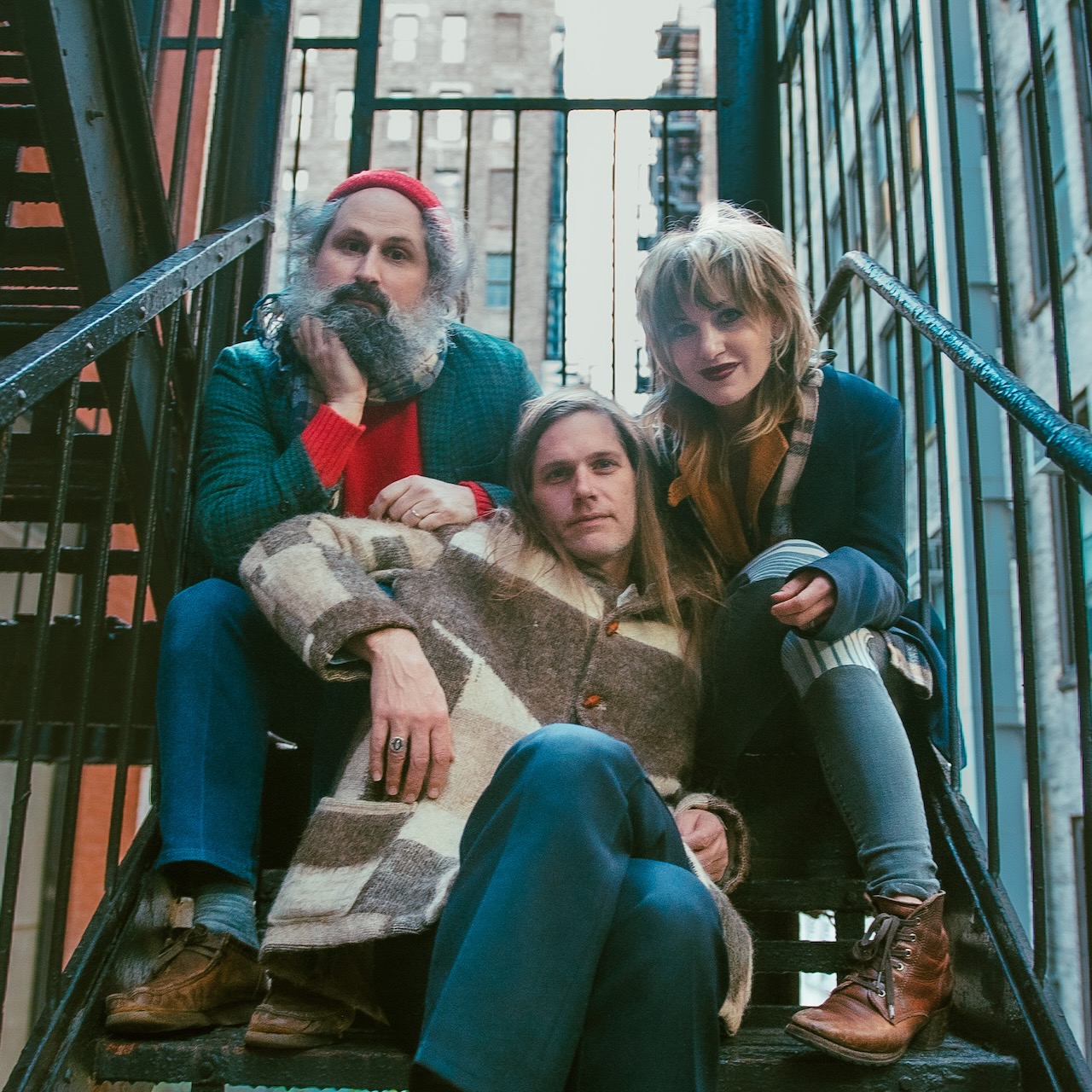Now entering their twentieth year together, Jason Boland & the Stragglers have grown into an Americana anomaly, regularly climbing into the upper reaches of the Billboard sales chart even as their raw, ragged honky-tonk music flies in the face of current trends. They get back to basics with Hard Times Are Relative, an album filled with two-stepping twang, roadhouse roots-rock and dance hall dynamics. Recorded without the help of a single computer, it’s a nostalgic album for the modern world — a reminder that good music existed long before ProTools and AutoTune.
“Some people think we’re too lighthearted for the deep, dark Americana fans, and too deep and dark and political for the lighthearted right-wingers,” Boland says from his home in the Texas Hill Country. “If you really dig into our stuff, though, you’ll see a group of guys on some kind of a journey. We always write our own stuff. We always do our own thing. We’ve never been too interested in ‘the scene.’ We’re interested in the music.”
You’ve been on the road for two decades now. Where do you spend your time when you aren’t touring?
I live in Canyon Lake but I grew up in central Oklahoma. It was a little town called Harrah, like the casino, but very different from a casino. I later moved to Stillwater and attended school for a year. I was just a kid in Middle America, trying to figure out what to do. Every time I enjoyed a class, someone would tell me, “Well, don’t major in that! You won’t get a job!”
So you focused on music instead?
I met a bunch of folks who hung out at a place called the Farm. It was a working farm and these guys rented a big house from the people who leased the property. Trailers were there. People were living in tents. It was as close to a commune as I’d ever seen. There was a rent jar that people would drop their money into. I think only one guy named Danny had the actual signature on the lease. We had a lot of fun there. There was always a campfire jam going on. It was the place where people like Bob Childers would hang out. The Red Dirt Rangers, too. Scott Evans. Brad James. All those guys. They all just lived out there, and you’d show up to the Farm and sit around and listen to these great songs played around a campfire, and you’d think, “Man, I need to go home and write some better songs.”
Stillwater must’ve been a magical place back then. So many bands got their start in town.
It really was a great music scene. This was before you could access music all the time on the internet, but well into the degradation of country music on the radio, so music fans were searching for anything good. There was a thriving scene of singer/songwriters in Stillwater. Cody Canada, Stoney LaRue, me, Steve Rice from the band No Justice…. For such a small little town, it was unheard of. The whole thing just caught fire.
Groups like Cross Canadian Ragweed worked rock & roll influences into their sound during those days. But your band has always stuck closer to the world of country music.
Rock & roll has this wonderful advantage of just being vague and pissed off, and it’s beautiful, you know? But it’s a very young sound, too. When we worked with Jim Ward on Squelch, he pointed out that in order to write a good folk song, you need to have a narrative. That’s true. And it’s a hard thing for a folk writer to do, to make these songs that relate a specific idea or emotion without crossing into corny territory, or sliding into goofy, riff-driven territory. I think it’s hard to make good country song — or good folk music — if you’re not just repeating something that’s already happened. You didn’t invent the G chord, you know? But the real trick is, where do you take it from here?
Maybe that’s one of the reasons Red Dirt music sounds different from Nashville music. Around the turn of the 21st century, Nashville’s biggest country bands modernized their sound. They embraced pop music, to the point where country and pop are often indistinguishable these days. But a lot of Oklahoma and Texas-based acts resisted that move.
Some people might go listen to the music that came out of Stillwater in the late ‘90s and say, “Oh, it was a bunch of garage-country-Southern-rock stuff.” And it might’ve been. But it was original. It was people rebelling against how music was losing its soul. It’s not like those people in Nashville couldn’t play. We just thought music had lost something and we’re still trying to follow in the footsteps of guys who had that certain kind of spirit, whether that spirit was outlaw and rebellious or something really classic. Country music has gotten pretty one-dimensional. I think what we were doing back then was real relevant. You have to remember it was the last few years before you could have access to any music that was ever released, right in the palm of your hand.
When the band began touring, how did you travel?
We started out in separate vehicles, then moved to a Suburban. We crashed that. We recouped. Moved into a van. Vans are great! Everyone can still lay down in a 15-passenger van. Then we moved into buses. We’ve been having trouble finding bus drivers lately, though! There’s a shortage of drivers down here. We did a one-off in St Louis in a van the other day. Every time we do something like that I love it, because going from a big bus to a smaller van just confirms that you’d still do it, no matter what the circumstances. It’s not about the comfort.
Speaking of comfort, did you go into the sessions for Hard Times Are Relative with the songs already worked out? Did you test them on the road beforehand?
I like to have a nice breakdown: half the songs have been played live and rehearsed; a quarter of the songs are relatively loose, and those tend to be acoustic songs or ballads, without a traditional honky-tonk band arrangement; and there’s usually one or two songs where we have no idea what they’re supposed to sound like. We tend to record from take to take. We don’t use Pro Tools or anything. We’re recording like it’s still Austin in the ‘80s at Cedar Creek. You get one take of everything. It is what it is. We have mistakes on the albums but we stand proudly by those clams.
And you must be proud of this album. It sounds like classic Jason Boland.
Well, our punky album was the last one. We often go back to a form of home base and this is one of our down-the-middle records. It’s weird. It gets all acoustic and happy right where you think it’s gonna take a punky turn, like “Tattoo of a Bruise.” I wish I knew how to clog whenever that song’s on. Then you’ve got “Grandfather’s Theme,” which is like a trippy rock song. We’re a country band that always does one or two rock songs an album. It’s all the same stuff, after all. It’s just production that separates it. When you go back and listen to Hank Sr., that sounds like a white guy from Alabama doing the blues, but it comes out truthful and authentic. He’s one of the pillars of modern country music. Maybe we’ll be remembered after we’re gone, too.
Photo credit: Cameron L. Gott Photography






